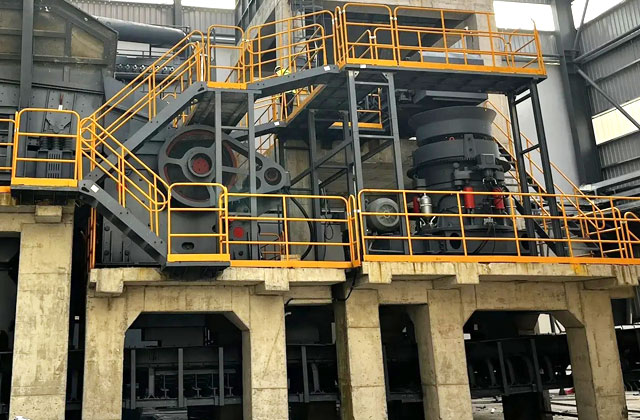When considering the purchase of a 200 TPH (tons per hour) capacity iron ore crusher, several key factors must be taken into account to ensure that the equipment meets operational needs and delivers efficient performance. Iron ore processing typically involves primary and secondary crushing stages to reduce the ore to manageable sizes for downstream processing. A crusher with a capacity of 200 TPH is suitable for medium to large-scale mining operations, providing the necessary throughput to keep production levels high while maintaining efficiency.
The first consideration is the type of crusher that best suits iron ore processing. Jaw crushers are often favored for primary crushing due to their ability to handle large feed sizes and produce a coarse product. Cone crushers, on the other hand, are more effective for secondary and tertiary crushing, offering high reduction ratios and finer product sizes. For a 200 TPH operation, a combination of both types may be necessary to optimize the crushing process, ensuring that the iron ore is processed efficiently and effectively.

Another critical aspect to consider is the materials of construction and design features of the crusher. Iron ore is abrasive and heavy, which means the crusher should be built from durable materials to withstand wear and tear. High-quality steel components and robust wear parts will extend the lifespan of the crusher and reduce downtime due to maintenance. Additionally, features such as hydraulic adjustment systems and overload protection mechanisms can enhance operational efficiency and safety, making the crusher more user-friendly and reliable.
Furthermore, the selection of a 200 TPH iron ore crusher should also consider the available space and integration with existing processing plants. It’s essential to assess the layout of the mining site, as the crusher’s size and configuration must fit into the overall design of the facility. Factors such as accessibility for maintenance and transportation of crushed materials should also be evaluated. Efficient logistics will reduce costs and improve the overall productivity of the operation.
Finally, it’s crucial to evaluate the supplier’s reputation, service offerings, and warranty provisions. Purchasing a crusher is a significant investment, and partnering with a reputable manufacturer can provide assurance regarding quality and performance. A supplier that offers robust after-sales support, including spare parts availability and technical assistance, can significantly contribute to the long-term success of the operation. Additionally, understanding the total cost of ownership, including maintenance and operating costs, will help in making an informed decision that aligns with the business’s financial goals.

